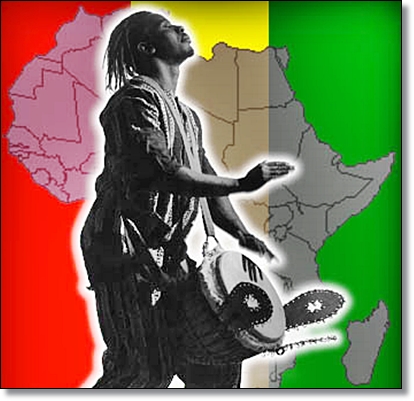Sierra Leone Music Industry and Governance Excesses

 |
The sociology of music has become a vibrant field of study in recent decades. While its proponents are aware of this field's contributions and relevance, my focus is on demonstrating its merit to the broader sociological community and its attendant impact on governance in Sierra Leone. Music provides an important and engaging purchase on topics that are of great concern to sociologists of all stripes—topics that range from the micro foundations of interaction to the macro-level dynamics of inequality.
What is Sociological about Sierra Leonean music? William Roy and Timothy Dowd answer this question by saying, among other things, that we could examine the interactions between musicians and fans, the passion of audiences, the way certain people play particular instruments, the communities that support, produce and transmit music, or how particular scenes develop and change social policies. One of the more straightforward ways to think sociologically about music, or really any art form, is to think about how conventions of art genres are formed and reinforced from person to person.
In Sierra Leone, prior to the 11 year civil war, there was nothing musical or sociological about music, squarely because of harassment from state politicians. The only viable means of music were the traditional ones most of which were clan based. It could not attract the heavy muscles of the then dictatorship because what was tagged as the Sierra Leonean society was not strict-to senso ‘modernized.’ In many instances, local musicians were at the beck and call of politicians, thus the need hardly arose for any anticipated criticism of bad governance. The industry was more of entertainment especially to politicians than enlightenment.
During the conflict, all shades of Sierra Leoneans, especially the youths who were mostly unemployed, were either perpetuators or victims of the brutal nature of the war. By 2002 when the conflict was officially declared over, the UN and other actors saw the need of creating entrepreneur avenues for these youths to be self-employed. Contemporary music industry saw its birth during this war torn reconstruction stage. Severally young men and women who were idle and could not be gainfully employed in the public sector created jobs for themselves. They took to songs that most times not only criticizes public actors in governance but raised awareness on national development issues. The public for the first time began to appreciate these Sierra Leonean lyrics in songs.
By 2004, barely two years after the official end of the war, Sierra Leone’s first anti-government music by the ‘Dry eye Crew’ and Emerson Bockarie hit the air waves. Unquestionably, the lyrics in most of the songs were directed at state officials who were tagged as corrupt and selfish. The popular ‘Borboh belleh’ that mimicked power thirsty and corrupt politicians is today accredited as the whistle blower songs that exposed the government to its electorates. The SLPP government then, it is alledged lost the 2007 elections due to the music industry. The songs this time by a new crop of musicians like the popular ‘Innocent’ in his “Gee them notice” album could not spear the incumbent SLPP from losing power to the APC which was in opposition.
Conversely, and in an effort perhaps to prove their sincerity in injecting doses of socio-cultural and political sanity in our overall governance land scape, these very musicians whom it is widely known contributed to a peaceful change of government through songs, are today castigating the Koroma led APC government for worst corrupt practices and social decadence that remorsefully leaves the electorate prefer the previous SLPP dispensation to the APC. This is the truth about the sociology of Sierra Leonean music. Our society has been tailored to songs that raise awareness and expose the ills of society. This is waht everybody looks up to. Even remote villages and towns, irrespective of their political affiliations, appreciate current trends in the Sierra Leonean music industry.
The test of our democratic tolerance which former President Tejan Kabbah exemplified is at a test. Can the Koroma led APC uphold and maintain the democratic standards, without due interference from the government and/or other state actors? The musicians are complaining that decadence in the music industry and state services is a result of bad leadership characterized by greed, selfish and corrupt politicians in the current political dispensation. The country has been divided along ethnic and tribal lines with one sector exclusively benefiting from state resources at the expense of the other tribes and regions.
This is no good sign if Sierra Leone is to continue to talk about post conflict state recovery and development. The TRC Report clearly maintains that part of the reason for the war and its brutal nature were as result of social and political exclusions, together with youth unemployment. Because the youths never had the avenue to freely express their dissatisfaction over the overt decadence in governance, they hurriedly embraced the RUF rebel war; perhaps as a means of registering their frustration with the government. Any attempt therefore to return to those pre-war conflict bad governance practices, where critics were summarily incarcerated for anti-government comments, will gravely undermine current Peace building initiatives spearheaded by the United Nations.
By Brima Patrick Kapuwa Ph.D
The author is Head, Department of Sociology and Social Work
School of Social Sciences Njala University, Bo, Sierra Leone.
